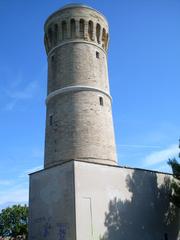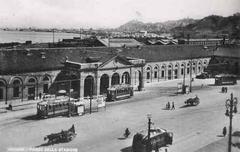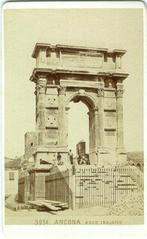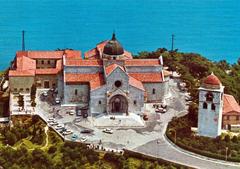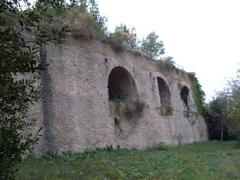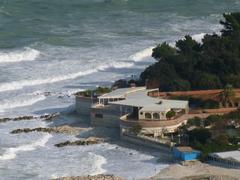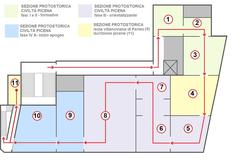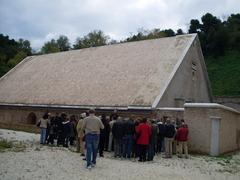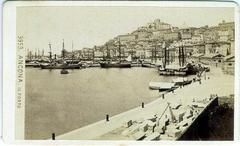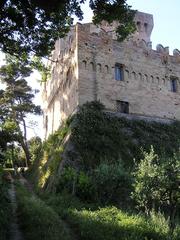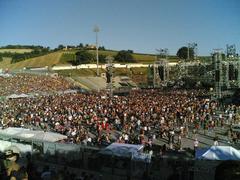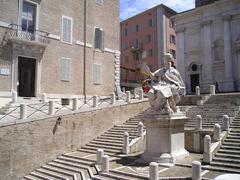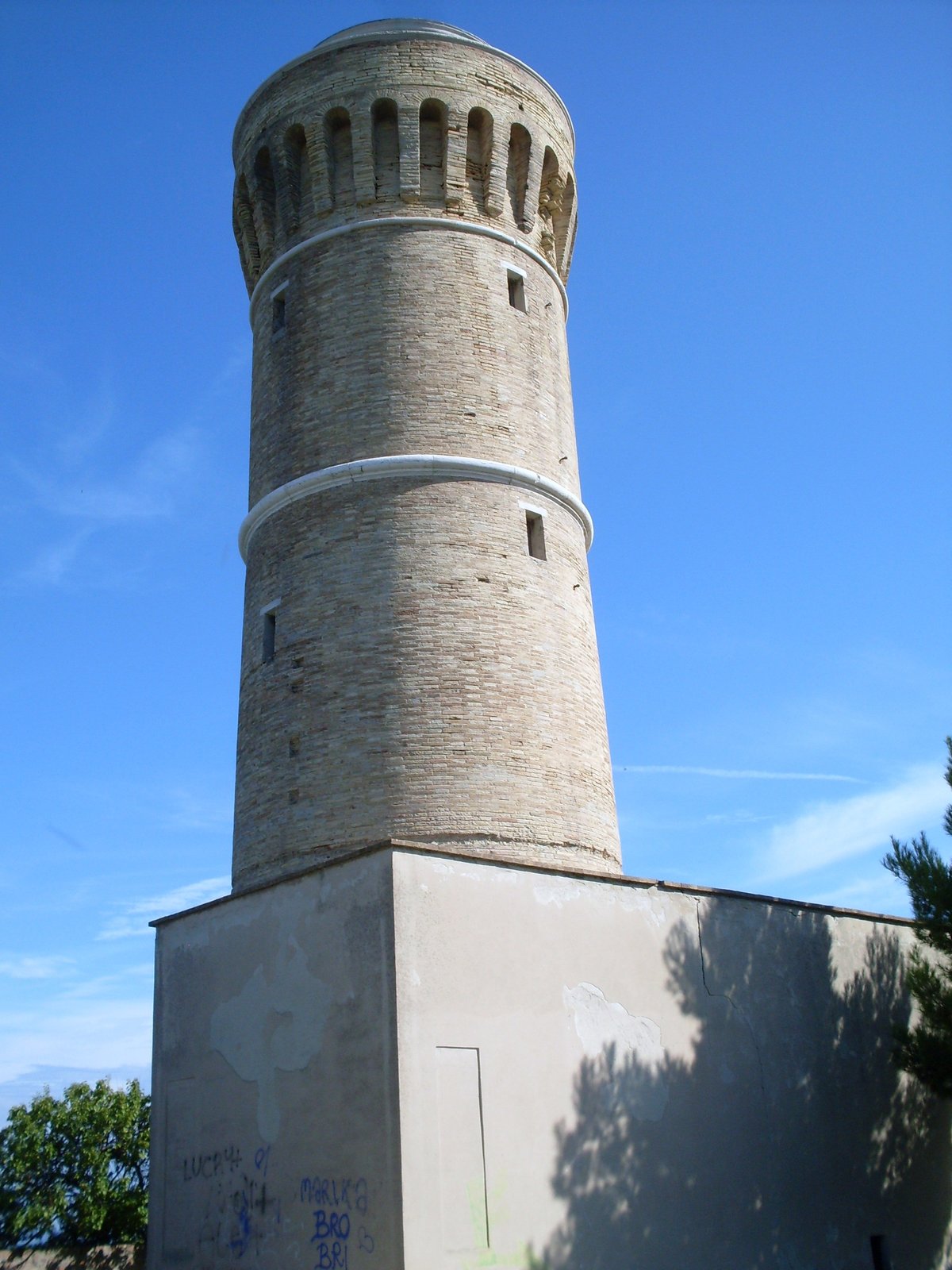
Ancona Lighthouse: Visiting Hours, Tickets, and Travel Guide
Date: 15/06/2025
Introduction
Perched on Colle dei Cappuccini, overlooking the Adriatic Sea, the Ancona Lighthouse (Faro di Ancona) is an enduring symbol of Italy’s maritime history. Its strategic location has provided guidance to ships for generations, while its panoramic views of Ancona’s historic center and harbor attract visitors from around the world. Although the lighthouse itself is an active naval facility and generally closed to the public, the surrounding Cardeto Park and old lighthouse remain accessible, offering a unique window into the city’s nautical past and vibrant culture (Nomadic Samuel, IBN Battuta Travel, Ancona Tourism).
This guide provides everything you need to know about visiting the Ancona Lighthouse: historical context, architectural details, practical tips, accessibility, and nearby attractions, ensuring a rewarding experience for every traveler.
Table of Contents
- Early Maritime Significance of Ancona
- The Old and New Lighthouses: History and Evolution
- Architectural Features and Technology
- Visiting Hours, Tickets, and Accessibility
- Nearby Attractions and Activities
- Practical Tips for Visitors
- Frequently Asked Questions (FAQ)
- Conclusion and Recommendations
- References
Early Maritime Significance of Ancona
Ancona’s importance as a maritime hub dates back to antiquity. Founded by Greek settlers—its name derived from “ankon,” meaning “elbow” for its natural harbor shape—the city became a vital trade gateway for both the Greeks and Romans (Nomadic Samuel, Italia.it). The Romans further enhanced Ancona’s port, commemorated by the iconic Arch of Trajan built in 115 AD.
The region’s challenging coastline made lighthouses indispensable. Ancona was among the first cities in the Adriatic to prioritize such navigational aids, ensuring safe passage for ships laden with goods and travelers.
The Old and New Lighthouses: History and Evolution
The Old Lighthouse (Faro Vecchio)
The first lighthouse on Colle dei Cappuccini was erected in 1860, commissioned by Pope Pius IX. Built of red brick on a stone base, it stood as a beacon of safety for nearly a century. The lighthouse was notable for its cylindrical design and advanced Fresnel lenses, which were state-of-the-art in the 19th century (Trek Zone, Outdooractive). Its light became synonymous with Ancona’s maritime identity.
By 1965, advances in navigation and technology rendered the old structure obsolete. It was officially decommissioned but remains a cherished historical landmark visible from Cardeto Park.
The New Lighthouse (Faro Nuovo)
To meet modern navigational needs, a new lighthouse was built in 1971, just 119.5 meters from the original. This modernist structure—constructed from reinforced concrete and topped with a double balcony and lantern—rises 15 meters above sea level (IBN Battuta Travel, Wikipedia). The new lighthouse emits four white flashes every 30 seconds, visible up to 25 nautical miles, and is managed by the Italian Navy.
Architectural Features and Technology
The juxtaposition of the old and new lighthouses showcases both tradition and innovation. The old lighthouse’s brickwork and spiral staircase evoke 19th-century Italian craftsmanship, while the new structure’s reinforced concrete ensures resilience against saltwater, storms, and seismic events (Outdooractive).
Technological advancements have transformed the lighthouse’s operations. Early versions relied on oil lamps and manual operation; the current facility features automated beacons and, historically, foghorns for low-visibility conditions (The Techy Life). Although GPS and modern navigation tools exist, the lighthouse remains an essential backup and visual emblem for mariners.
Visiting Hours, Tickets, and Accessibility
Hours and Admission
- Cardeto Park (where both lighthouses are situated) is open from dawn to dusk.
- Access to the lighthouse exteriors is free. The interior of the new lighthouse is not open to the public except during rare, organized tours or maritime events (Ancona Tourism).
- Guided tours are occasionally offered during local festivals; check the Ancona Tourism website for updates.
Getting There
- The lighthouses are accessible via scenic trails through Cardeto Park, with entrances on Via Cardeto and Via del Faro.
- The park is within walking distance from Ancona’s historic center and is served by local buses.
- The ascent through the park is moderately steep and involves uneven terrain. Comfortable walking shoes are recommended.
Accessibility
- Paths to the lighthouses are not fully wheelchair accessible due to natural terrain and steps.
- Lower sections of Cardeto Park are more accessible and still provide excellent views.
Nearby Attractions and Activities
- Cathedral of San Ciriaco: A Romanesque-Byzantine cathedral with panoramic views.
- Arch of Trajan: Ancient Roman monument commemorating the port’s expansion.
- Jewish Cemetery: One of Europe’s oldest, located within Cardeto Park.
- Castelfidardo Armory: Historic military site adjacent to the park.
- Lanterna Rossa: A striking red lighthouse at the old port, accessible via a scenic harbor walk.
Combine your lighthouse visit with a broader walking or cycling tour of Ancona’s historical sites (Ancona Tourism).
Practical Tips for Visitors
- Best Time to Visit: Spring (April–June) and early autumn (September–October) offer mild weather and lush park scenery. Sunset is ideal for photography.
- What to Bring: Comfortable shoes, water, snacks, camera, and sun protection.
- Facilities: Public restrooms are available at park entrances; facilities are limited within the park.
- Safety: Stay on marked trails, respect operational boundaries, and observe fire safety rules.
Frequently Asked Questions (FAQ)
Q: What are the Ancona Lighthouse visiting hours?
A: Cardeto Park is open from dawn to dusk; access to lighthouse exteriors is available during these hours.
Q: Are tickets required?
A: Admission to the park and lighthouse exteriors is free. Tickets may be required for special guided tours.
Q: Can I enter the lighthouse?
A: Interior access to the new lighthouse is not permitted except during rare, organized tours.
Q: Is the site wheelchair accessible?
A: The trails are not fully accessible due to uneven terrain and steps; some lower park areas are more accommodating.
Q: What else can I visit nearby?
A: The Cathedral of San Ciriaco, Arch of Trajan, Jewish Cemetery, and Lanterna Rossa are all within walking distance.
Conclusion and Recommendations
The Ancona Lighthouse is more than a navigational beacon—it is a testament to the city’s maritime heritage and a highlight of any visit to the Adriatic coast. While interior access is limited, the surrounding parkland, historical sites, and sweeping views make the journey memorable. Plan your visit for the spring or autumn, and explore Ancona’s rich blend of history, nature, and culture.
For the latest updates on visiting hours, tours, and local events, download the Audiala app and consult the official Ancona Tourism website.
References
- Ancona Lighthouse: Visiting Hours, Tickets, and Historical Significance in Ancona, 2025, IBN Battuta Travel
- Ancona Lighthouse: Visiting Hours, Tickets, and Exploring Historical Maritime Heritage, 2025, Wikipedia and Outdooractive, Outdooractive
- Visiting Ancona Lighthouse: History, Tickets, and Travel Tips, 2025, Springer and MarineLink, MarineLink
- Ancona Lighthouse Visiting Hours, Tickets, and Guide to Ancona Historical Sites, 2025, Ancona Tourism
- Early Maritime Significance of Ancona, 2025, Nomadic Samuel and Italia.it, Italia.it
